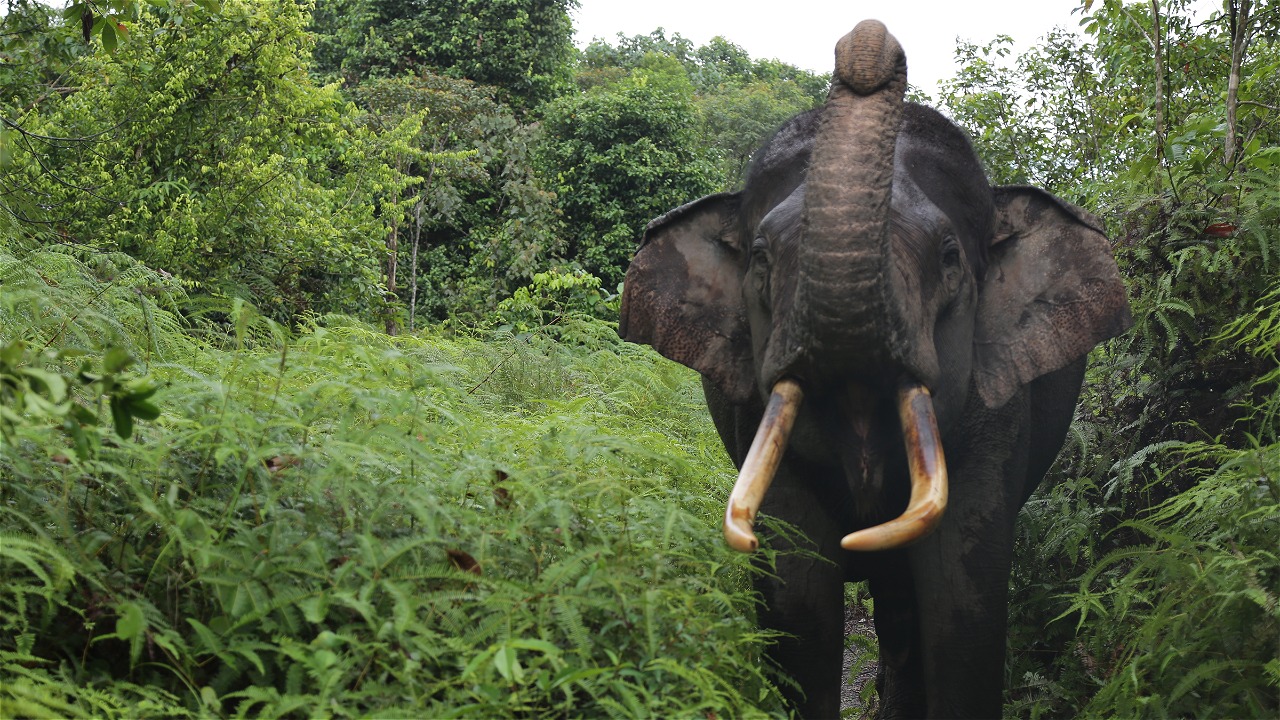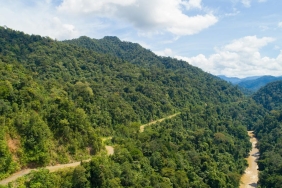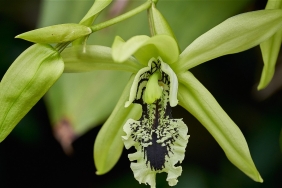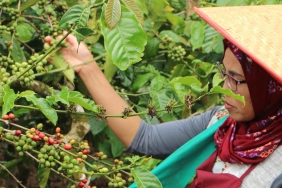WWF SUPPORTS SOLVING ELEPHANT POACHING CASE
Jakarta - WWF appreciates the success of Riau Police in arresting elephant poachers on February 10. As reported, Riau Police managed to arrest eight elephant poachers who were caught red-handed with evidence of one pair of intact elephant tusks with a total weight of about 40 kilograms along with a number of equipment used by the perpetrators for hunting, including a long-barreled assembled firearm type mauser, complete with six bullets of 7.62 millimeter caliber.
Information obtained from hunters, the location where the ivory was taken came from Mandau District, Bengkalis Regency, Riau. In addition, reportedly, the perpetrator and his network also admitted to killing elephants in several other locations including around the Tesso Nilo area, Riau, and around Bukit Tigapuluh, Jambi.
Sunarto, Species Expert of WWF Indonesia said "From the size of the tusk, we believe this is one of the largest individuals of the very few adult male elephants left in the Balai Raja or Giam Siak Kecil population pockets". These two elephant population pockets are the last hope for their conservation in Northern Riau, as other population pockets are already in a more critical condition. "The killing of the very few adult male elephants will significantly reduce the population and accelerate the extinction of this highly intelligent and socially advanced animal," Sunarto added.
WWF Indonesia records show that at least 145 individual elephants have died in Sumatra since 2004, either due to conflict or poaching. From several cases in the last three years, there are strong indications of professional poachers who have been operating in Lampung to Aceh with a very similar mode. Of the many cases, only a handful of elephant death cases have been successfully brought to trial, namely one case in Aceh last year, and a case in Riau in August 2005. The case in Riau in 2005 was filed thanks to the arrest of a perpetrator by the Rokan Hulu Resort Police involving ivory poaching by a perpetrator from Bengkulu, one of whom was sentenced to 12.5 years in prison.
"This result achieved by Riau Police is a momentum that must be used to uncover other elephant killing cases both in Riau and other areas in Sumatra and the wider ivory trade network," said Arnold Sitompul, Conservation Director of WWF Indonesia. Arnold continued, "It is important to ensure the arrest of ivory poachers can be brought to trial and sentenced to the maximum penalty. Weak law enforcement against elephant deaths has been the cause of the recurrence of elephant killing cases."
Krismanko Padang, Chairperson of the Indonesian Elephant Conservation Forum stated, "Seeing several cases of elephant deaths due to poaching using firearms, we hope that the Police can increase supervision in the ownership of firearms". In addition, in addition to the natural resource conservation law, Krismanko also hopes that the police can ensnare the perpetrators with laws related to firearms ownership with a life sentence.
Several poaching cases so far have occurred in industrial plantation forest areas, and most of the dead elephants were found in these areas as well. Arnold added, "This proves that the efforts made by concessionaires are still not enough and their active participation needs to be increased. The government should be able to monitor and ensure adequate safeguards by concessionaires against illegal activities such as poaching within the areas they are responsible for."
--0--
For more information:
Sunarto, Tiger & Elephant Specialist, WWF-Indonesia, sunarto@wwf.or.id, +62-811-9950-251
Note to Editor:
1. Another case of elephant death that is still under investigation by the Riau Natural Resources Conservation Center (BBKSDA) is the case of an elephant death that occurred in June 2014 in a RAPP concession that overlaps with Tesso Nilo National Park. According to the results of the crime scene conducted by BKSDA, police and WWF, there are strong indications of firearms use. There were four holes in the skull that were strongly suspected to be the result of firearm shots. All four holes were located on the left side of the head, one in the temple, three in the cheek cavity with close proximity. The elephant's tusks were allegedly taken by force using a sharp object. Pieces of the trunk were also seen dumped not far from the elephant carcass.
2. The perpetrators of protected wildlife poaching can be charged with Law Number 5 of 1990, concerning the Conservation of Biological Natural Resources with a penalty of five years in prison, and a fine of Rp. 200 million.
About WWF-Indonesia
WWF-Indonesia is an independent national conservation organization and part of the WWF global network. Starting work in Indonesia in 1962 with the Javan Rhino study in Ujung Kulon, WWF-Indonesia is currently active in 28 fieldwork areas in 17 provinces, ranging from Aceh to Papua. Supported by around 500 staff, WWF-Indonesia works with the government, local communities, the private sector, NGOs, civil society and the public at large. From 2006 to 2013, WWF Indonesia was supported by around 64,000 supporters in the country. Visit www.wwf.or.id.





